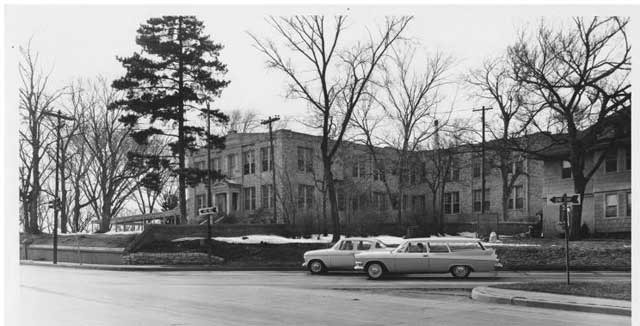A Debt of Blood
SHORT FICTION
By M.D. Smith IV
8/20/2025


The first killing was messy. Forty-one stab wounds. No fingerprints or DNA. No signs of forced entry.
The victim, Daniel Jones, a retired assistant manager of the Eastbrook Home for Boys, once located in Chicago’s gritty South Side. He died in his recliner, TV flickering static over his lifeless body with a sliced neck, and a punctured, hairy belly exposed from the ripped, now crimson, shirt.
Detective Mark Kenshaw stood in the quiet crime scene that morning, the first rays of daylight slanting through the venetian blinds like jail bars. The coroner whispered, “Damn. Overkill. Personal.”
Kenshaw wasn’t surprised. What did surprise him was how clean it all was—no prints, no weapon, no evidence. Just rage.
He rubbed his eyes. He hadn’t slept properly in days.
At the precinct, Captain Broyles said, “Take the phone call. And for God’s sake, keep your nose clean. Your wife’s been calling.”
Yeah. Carrie. His wife suspected an affair with Janice Hanley, a records assistant—only partly true. They hadn’t slept together, but they’d had more than one nightcap and lingering conversations in parked cars.
He picked up the phone. Another murder.
Agnes Pond, past matron of Eastbrook. A strict woman with a reputation for brutal punishments.
Found in her bed, throat slit, breasts pierced, deep abdominal wounds all the way down to her genitalia, defensive marks on her arms. The count of stab wounds—uncertain.
At the scene, Kenshaw observed the one thing overlooked in the initial report. Her eyes had been stabbed multiple times with the knife. Only bloody sockets remained.
“Holy shit,” Kenshaw gasped. Whoever did this has really fuckin’ unbelievable rage. If he’d had more time, we might never have found all the pieces.”
Again, no usable evidence, no weapon, no forced entry, maybe lock-picked. There’d been rubber glove handprints and bloody footprints made by hospital booties. Untraceable and disposable. Same M.O. as Jones. Late night. Same precise savagery.
Something in Kenshaw spurred an idea about Eastbrook. He pored over the orphanage’s closed records. It’d been shuttered eight years ago after declining oversight and whispered lawsuits.
He made a request to Janice in records for a list of boys deemed “behavioral problems.” Twenty names returned. One name jumped out like blood on snow.
Mason Gamble.
Fifteen counts of violent outbursts as a minor. Juvie by fourteen. Armed robbery conviction by nineteen. Just released from Stateville Penitentiary a year ago.
He was back in Chicago with a non-current address.
#
Kenshaw pulled the file on Franklin Greenwood, the last living connection. Director of Eastbrook at its close. Smooth-faced man with a polished exterior and a gentle, eerie voice.
Kenshaw met him at his upscale townhouse.
“You think I’m next?” Greenwood asked, pouring tea that neither of them would drink.
“I think someone’s settling a score,” Kenshaw said. “And you’re on their list.”
Greenwood looked to the ceiling in thought. “If I had to pick anyone, it’d be that little prick, Gamble. That bastard caused us more trouble that any three others. Got plenty of punishment too. What an asshole.”
“He’s on the list we’re looking at.”
A friend of Greenwood’s, Officer Lane, would guard Greenwood’s home overnight. Perps like this worked in patterns. They struck where victims felt safest.
#
Meanwhile, Kenshaw made a move to repair his shaky marriage.
He had Carrie come down to the station to meet Janice. The meeting was awkward, antiseptic. Janice was older than Carrie expected. Cold. All business.
“I’m only a friend to your husband,” she said.
Maybe Carrie was wrong. She left, saying, “I’ll think about it.” It wasn’t forgiveness, but it wasn’t goodbye either.
#
2:03 a.m., Greenwood’s home with steady light rain and fog.
Mason slipped through the yard, masked in dark clothes. The officer posted outside never saw the blow coming. A sap to the temple—down and out.
Inside, after picking the lock, Mason moved like a ghost. He stood over the sleeping director and pressed the knife tip to the man’s throat.
Greenwood woke with a choked cry and slowly stood.
“You remember me, you sonofabitch?” Mason hissed. “Mason Gamble. The one you called ‘garbage in human skin.’ The one you let Pond abuse. The one you let Jones take to the basement for unspeakable punishments.”
Greenwood whimpered.
“You ruined me. All of you. Your orphanage made monsters, boys died, but claimed you were doing good, and their deaths were accidents. I barely survived.”
Outside, Officer Lane came to and called Kenshaw, who lived nearby. He passed out briefly, then awoke, stirred, and staggered into the house. Gun drawn, he followed the sound of voices to the master bedroom.
“Drop the knife!” Lane yelled.
Mason grabbed Greenwood and spun him in front like a shield.
“You drop the gun or I’ll slice this fucker’s throat in half.”
Mason edged toward the door with his hostage.
The officer aimed at Mason’s profile with a shaking hand. He fired once.
The bullet passed through Greenwood instead. He slumped. Mason screamed and lunged forward, knife in his raised hand. Another two shots.
Mason collapsed, clutching his side, blood pulsing through his shirt.
Detective Kenshaw arrived seconds later, drawn by Lane’s urgent call. He stepped into the chaos, the stench of blood and broken justice heavy in the room.
Mason’s eyes fluttered open. His voice was a rasp.
“I told him what they did. What they all did. Pond, Jones, Greenwood. The beatings. The things they did in the punishment room. They crushed us. I’m not the only one they… they killed or destroyed.”
“Why kill them?” Kenshaw asked in a quiet voice.
“N-No justice if I didn’t. F-for-for all of us,” Mason whispered. “Now maybe the d-d-dead can rest.”
He coughed blood, eyes going glassy.
The air took a chill, like someone had opened a freezer door, and three white, shimmering, and translucent outlines of boys appeared over Mason’s body. Kenshaw stepped back, glanced at Lane, whose eyes were bulging wide, and tipped his head toward the spirits. Lane gave a quick nod—he saw them too. They tugged on Mason’s hands, and the same ghostly image rose from his body. Then, all four specters moved upward and vanished through the ceiling. The spirits of the boys who never made it out were now free, along with Mason’s. They could all pass into the beyond.
#
The aftermath was quiet. No charges were brought against Officer Lane. Greenwood’s shooting—accidental. Mason’s—justified.
Greenwood would survive, but barely. A shamed man now. And Kenshaw would testify later about the things Mason had said—the abuse, the cover-ups, the rot buried under Eastbrook’s legacy.
An inquiry into the orphanage was quietly reopened.
#
Kenshaw arrived home on damp streets at 4:41 a.m.
Inside, the house was dark except for a soft glow from the bedroom nightlight. He pushed the door open gently.
Carrie lay awake, eyes on him, the sheet barely covering her naked body.
She said nothing, just reached out a hand.
Forgiveness doesn’t always need words. He undressed and slipped under the covers.
A ghost of mistrust also vanished that night.
BIO: M.D. Smith of Huntsville, AL, writer of over 350 flash stories, has published digitally in Frontier Times, Flash Fiction Magazine, Bewilderingstories.com and many more. Retired from running a television station, he lives with his wife of 64 years and three cats. https://mdsmithiv.com/
Follow on Social
Literary Garage: Storytelling with grit, heart, and no off-ramp.
© 2025. All rights reserved.
Connect


editor@literarygarage.com
Follow us on Substack for updates and news
Clicking thE SUBSTACK link will direct you to an external website for our Substack feed. The content and privacy practices of Substack are not controlled, and no responsibility is taken for any issues that may arise on the platform.
